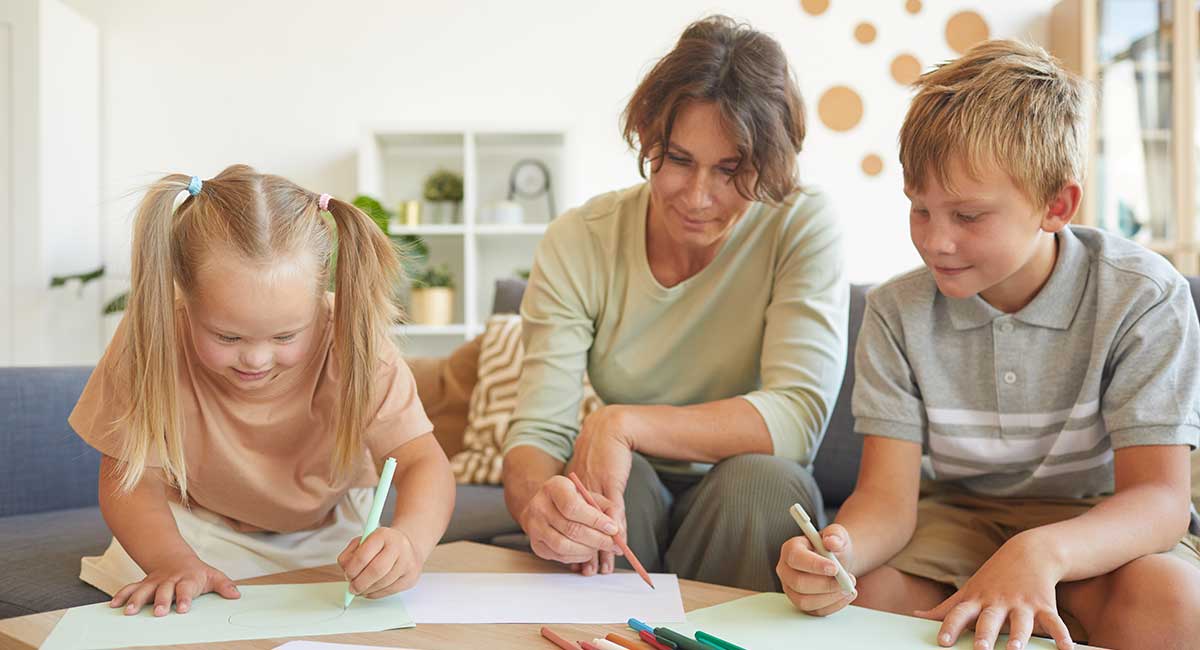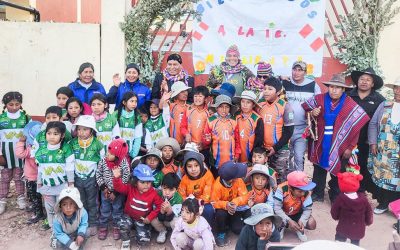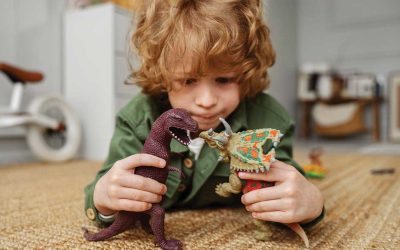It is well documented that early intervention is critical when it comes to therapy services for children. And for Sunshine Coast families, that journey just became a world easier with the opening of Early Start Australia in Buderim.
Delivering a range of therapy services, working with children who have challenges associated with developmental delays, genetic disorders, Autism Spectrum Disorder, ADHD, language delays and other neurological disabilities and mental health diagnoses, we chat to Practice Principal Georgie Pearce to find out more about the new clinic.
You are opening a new clinic in Buderim, how exciting! What services will you offer to Sunshine Coast families?
It is really exciting!
At the moment we are offering Occupational Therapy and Speech Language Pathology as our core services. Our therapists are trained to offer early intervention services as well as services for school aged children, teenagers, and young adults. We are happy to travel out to schools, homes as well as seeing children and families in our fabulous new space. We are NDIS registered and therefore are able to service children who are accessing the NDIS scheme as well as families with Medicare referrals or paying privately. On top of that, we are going to have school holiday groups, social skill groups and school readiness groups happening during school holidays and after school. Down the track we may look at adding even more services as we grow. We have the room in our clinic for it so watch this space!
Why did you feel there was a need for opening the service?
Early Start Australia has come about from a group of like-minded people really wanting to make a difference for children and families experiencing the difficulties that come with disability. We have been growing and growing over the past few years and along with clinics all over the country we have several clinics in both the Gold Coast and in Brisbane. We have always been aware of the need for more services up here and therefore when the opportunity arose, we jumped at it.
With several services under one roof, do you provide a blend of therapy services, tailored to the child?
It is such a blessing having a few services under one roof. When being seen by more than one therapist it is invaluable to provide a service where there is continuity of strategies and approaches to reach the child’s goals. Our therapists all have a good knowledge of the core service offerings and skills of the other disciplines within our team and work really well together. Where it is appropriate, we are able to provide a blend of services tailored to the child.
There tends to be three ways we would approach a blended service. We can have joint sessions where therapists from different disciplines may see your child at the same time, using the same activity but working on individual goals. We also have our therapists see children individually, but then have regular case conferences and discussions where their strategies and approaches are discussed in order to ensure continuity across sessions. Finally, we can work from a ‘key worker model’ where the child is known to a group of therapists but there is one key therapist who is your main contact, provides the therapy and reports back to the therapist team regularly.
And you offer mobile and tele-health too! Why did you choose to offer this, and how do you feel this additional outreach service will benefit families?
We understand that it is not always possible for children to be seen in the clinic and therefore we want to be as flexible as we can be with providing our interventions. We also understand that the child we see in the clinic may be very different to the child’s presentation in another setting. Therefore, we want to provide therapy in the way that it is going to provide the most benefit.
Telehealth has been a blessing out of covid, and we are all now highly skilled at providing therapy online. This service has allowed us to reach even further with our services to areas where there may not be the same amount of opportunity for choice and control over therapy.

Why do you feel early intervention is so important with children who have challenges associated with developmental delays?
It is important for us to start seeing children as soon as we can. We want to work with families to assist when the gaps between expected functioning and their everyday abilities as soon as they are identified and therefore we are able to provide some really good, evidence based and, at times, intensive support to help get them the best life outcomes that we can. It is also important to us that families feel supported as soon as they notice things are different, answer their questions and work with them to understand what is going on for their child. Early intervention also allows us to look at the child’s environments (such as school, kindergarten or child care) and assist the people around them to find ways that allow them to participate fully and engage with their daily routines, and have a chance to be themselves and connect with others.
Supporting families is also a key part of therapy for children facing challenges. How does Early Start Australia work with families to ensure the best possible outcomes?
At Early Start Australia it is part of our core practice to work with families. We provide family-centred supports throughout the journey – from initial contact with administrative staff and through regular interactions with therapists. After our initial few appointments with a family, we like to set collaborative goals which considers a family’s strengths, needs and priorities. After this we write a therapy service plan which can be shared with the family and any other people involved with the child. This plan outlines what we are working towards, within what time frame and what strategies we plan to use. We like to remain as transparent and approachable as possible.
If regular face-to-face contact is not possible, we like to organise regular phone or tele-health catch ups with families. This is so important to us as we see a child for such a small portion of a child’s week and usually only in one setting. So much more learning happens outside a therapy session and therefore we like to make sure parents feel comfortable assisting their child in all their other environments.
What advice do you have for parents whose child has developmental challenges?
First off, it is completely understandable and normal to be feeling a bit overwhelmed or confused, but there are now so many people, services and resources available to help you on your way. There is a fabulous website rasingchildren.net.au which is government funded and provides parenting videos, articles and apps. You can go there to learn about what to look out for, what supports are available, what therapies are available (and what they actually do), and learn more about the evidence behind different types of support. I would also recommend speaking to your GP, seeing if you can get a referral to an Occupational Therapist, Psychologist and or a Paediatrician to start to learn a bit more about your child and your options.
Do you feel there is an increase in developmental challenges in children today? Or is it simply that more cases are being diagnosed?
I think we are more aware of what is going on for younger children today. We understand expected milestones for children better than we ever have and we have more idea of clues for when these are falling behind. I am also proud that we are breaking down the stigma in asking for some help, speaking about it when children have difficulties and normalising getting some support. We have a growing bank of evidence on developmental milestones, therapies and appropriate supports which also legitimises how people are feeling, and what they are seeing.
What has been your most fulfilling/proudest moment in children’s therapy so far?
I feel the proudest when I see children achieve things it was never believed they could. This has ranged from making a friend in the playground, to using the bathroom independently. I have seen children who had no words start speaking in sentences, and children whose only way of communicating frustration was through hitting, start to talk to their parents and use their calm down strategies independently. Every day is different and exciting and that is why I love working in this area.
My overall therapy goal is always to increase the quality of life in my clients however I can. My favourite conversations are the ones where I am able to say, “you know what, I don’t think you need me anymore” and “it is time for a break and let me know how things are going in 6 to 12 months’ time”.
How do families access your services?
All families have to do is give us a call or jump on our website. Our Facebook page and Instagram will also have updates of the groups we are running or if there is any new information about our services. You do not need a referral from a doctor or other funding source to come to see us!
CONTACT:
Phone number: 5302 6878
Email:
Website: https://earlystartaustralia.com.au/clinics/buderim/
Facebook: @esa_buderim
Instagram: @esa_buderim




